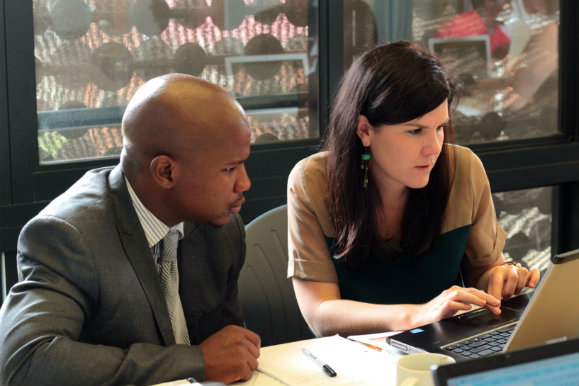
As one of its achievements to end the year, SAHA has improved the functionality of the PAIA Request Tracker and has shared those developments with its network of users. Considering the worrying trends of reduced access to information, recently published in the PAIA Civil Society Network's annual Shadow Report, it is imperative that the PAIA Request Tracker is used to continue improving the efficient monitoring of compliance with the Promotion of Access to Information Act, 2000 (PAIA).
PAIA CSN
SAHA is a founding member and the current Chair of the PAIA Civil Society Network (PAIA CSN) which was established in 2009. The network is in an umbrella body of organisations who work to strengthen the use and implementation of PAIA so that both public and private bodies in South Africa become more transparent and accountable.
Most recently, the PAIA CSN published its annual Shadow Report. The statistics for that report were largely sourced from the PAIA Request Tracker, and reveal that openness and transparency by information holders in the public and private sector have decreased from the already low levels of compliance recorded by the PAIA CSN in previous years. Alarmingly, over half of PAIA requests were simply unanswered and only 16 per cent of requests received a full release.
PAIA Request Tracker
The PAIA Request Tracker is a multi faceted tool primarily used by PAIA CSN members to ensure the use and compliance with PAIA, in order to enable the right of access to information.
The PAIA support tool was created in 2009 with funding from Open Society Foundation, in order to streamline the PAIA request process, bring more consistency in requests and provide a records management system.
The development of this tool was also supported by partner organisations, such as the Centre for Environmental Rights (CER) who piloted the PAIA Request Tracker. Eishe Heitmann Programme Officer on the Transparency Programme at CER explains how the PAIA Request Tracker supports the work of CER:
"The PAIA tracker is a great tool for us at the CER because of the frequency with which we use PAIA. Not only does the PAIA Tracker provide us with a useful system for the submission, tracking, and recording of requests, but the initiative is invaluable in its contribution towards identifying trends and generating statistics in access to information across private and public sectors, throughout South Africa. This data in turn assists in highlighting issues of concern, as well as opportunities for reform, which is central to the work that we do."
PAIA Tracker Availability and Training

In realising the need to access information in assisting individuals within their organisation, network partners requested training on the PAIA Request Tracker. Accordingly, CER received training in Cape Town on 11 November and, on 15 November, ProBono.Org and Corruption Watch attended a training session in Johannesburg.
Whilst ProBono.Org and Corruption Watch were introduced to the PAIA Request Tracker for the first time, CER already had some experience and gained a deeper appreciation of the PAIA Request Tracker.
The group sessions employed a variety of training methods, ranging from instructor led learning to peer-learning through interactive group activities and discussion. During the each training session, organisations actually submitting a PAIA request.
SAHA also employed a range of training materials, including case studies, a resource kit and a manual for the PAIA Request Tracker.
In response to the training, Sharon, Head Attorney at ProBono.Org, commented,
"The theoretical aspects of the training blended well with practical aspects. As a result thereof ProBono.Org is now in a better position to submit PAIA applications and the tracker will be instrumental in this regard."
Following this most recent engagement with ProBono.Org, a longstanding partner of SAHA in PAIA related litigation, is now interested in joining the Network. The PAIA CSN continues to welcomes all organisations that are committed to improving the optimal implementation of PAIA.
SAHA wishes to express its gratitude to Open Society Foundations for their financial support which made building and training on the PAIA Tracker possible.
Learn more on the Freedom of Information Programme
Download the PAIA Resource Kit - 1Mb [Registration required]
For support in submitting a PAIA request contact the FOIP team







